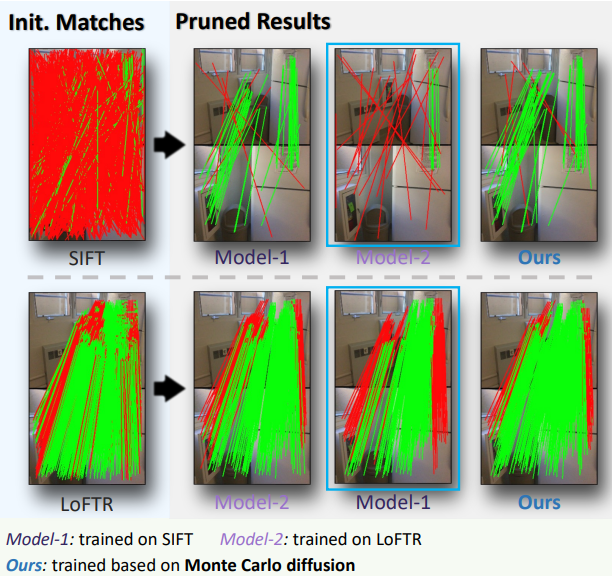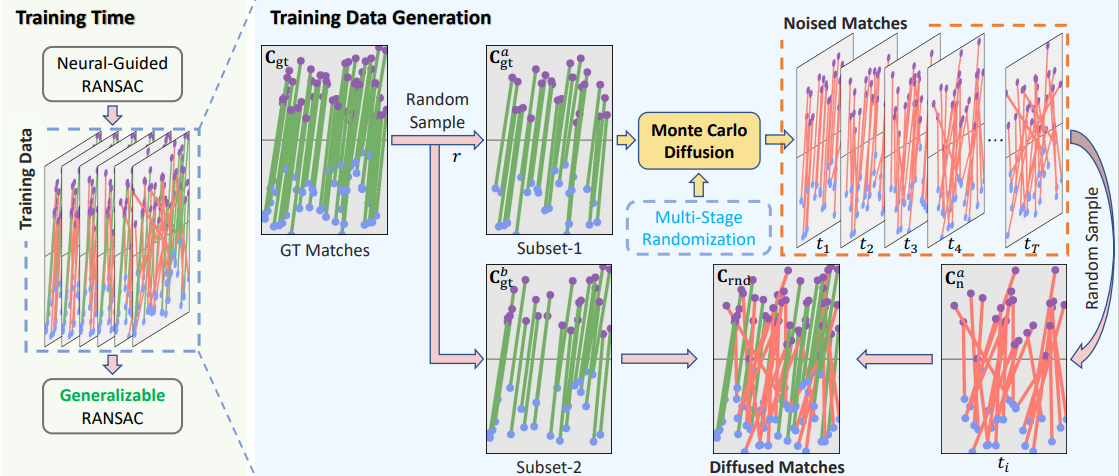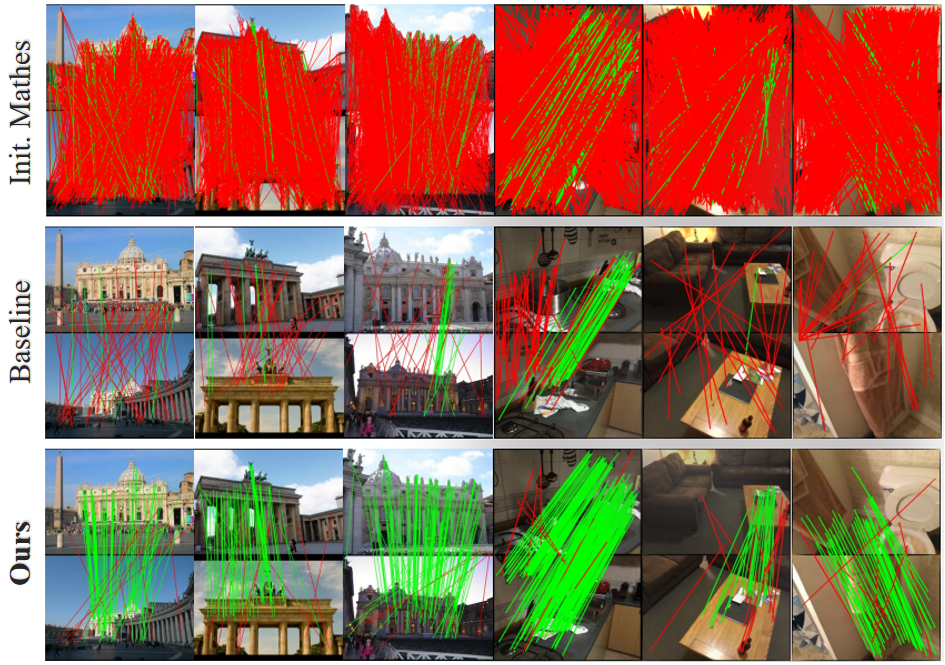Abstract

Random Sample Consensus (RANSAC) is a fundamental approach for robustly estimating parametric models from noisy data. Existing learning-based RANSAC methods utilize deep learning to enhance the robustness of RANSAC against outliers. However, these approaches are trained and tested on the data generated by the same algorithms, leading to limited generalization to out-of-distribution data during inference. Therefore, in this paper, we introduce a novel diffusion-based paradigm that progressively injects noise into ground-truth data, simulating the noisy conditions for training learning-based RANSAC. To enhance data diversity, we incorporate Monte Carlo sampling into the diffusion paradigm, approximating diverse data distributions by introducing different types of randomness at multiple stages. We evaluate our approach in the context of feature matching through comprehensive experiments on the ScanNet and MegaDepth datasets. The experimental results demonstrate that our Monte Carlo diffusion mechanism significantly improves the generalization ability of learning-based RANSAC. We also develop extensive ablation studies that highlight the effectiveness of key components in our framework.
 In our approach, we leverage a diffusion process to simulate noisy data for training a learning-based RANSAC algorithm. Specifically, given a set of ground-truth matches between two images, we first randomly split these matches into two subsets. One of the subsets undergoes processing through a Monte Carlo diffusion module with multi-stage randomization, generating multiple sets of noisy matches at different timesteps. During this process, by combining the other subset of matches, which is not processed by diffusion and considered as inliers, with samples from a specific timestep as outliers, we form the final diffused matches. The learning-based RANSAC is then trained on these generated noisy matches.
In our approach, we leverage a diffusion process to simulate noisy data for training a learning-based RANSAC algorithm. Specifically, given a set of ground-truth matches between two images, we first randomly split these matches into two subsets. One of the subsets undergoes processing through a Monte Carlo diffusion module with multi-stage randomization, generating multiple sets of noisy matches at different timesteps. During this process, by combining the other subset of matches, which is not processed by diffusion and considered as inliers, with samples from a specific timestep as outliers, we form the final diffused matches. The learning-based RANSAC is then trained on these generated noisy matches.
